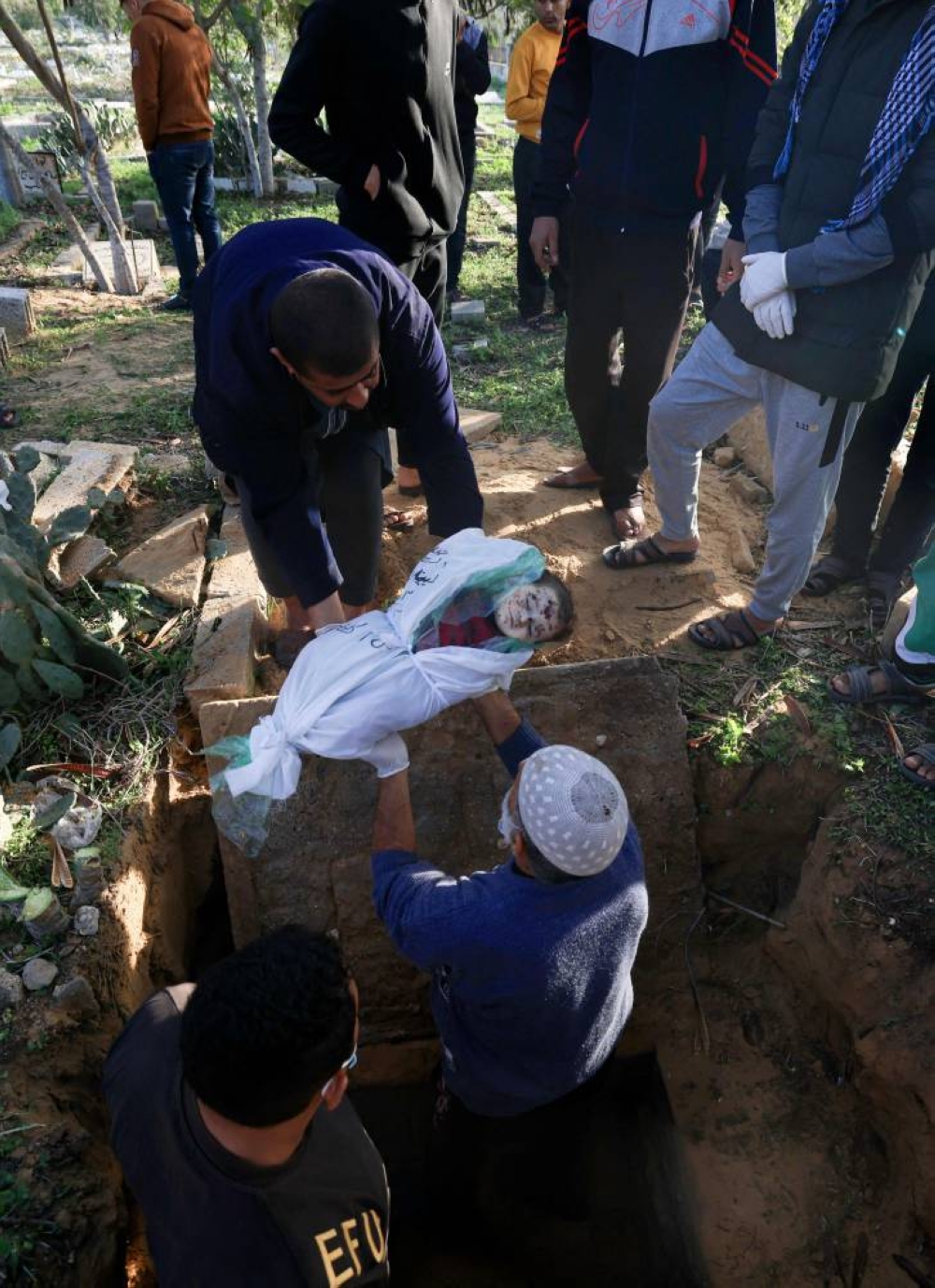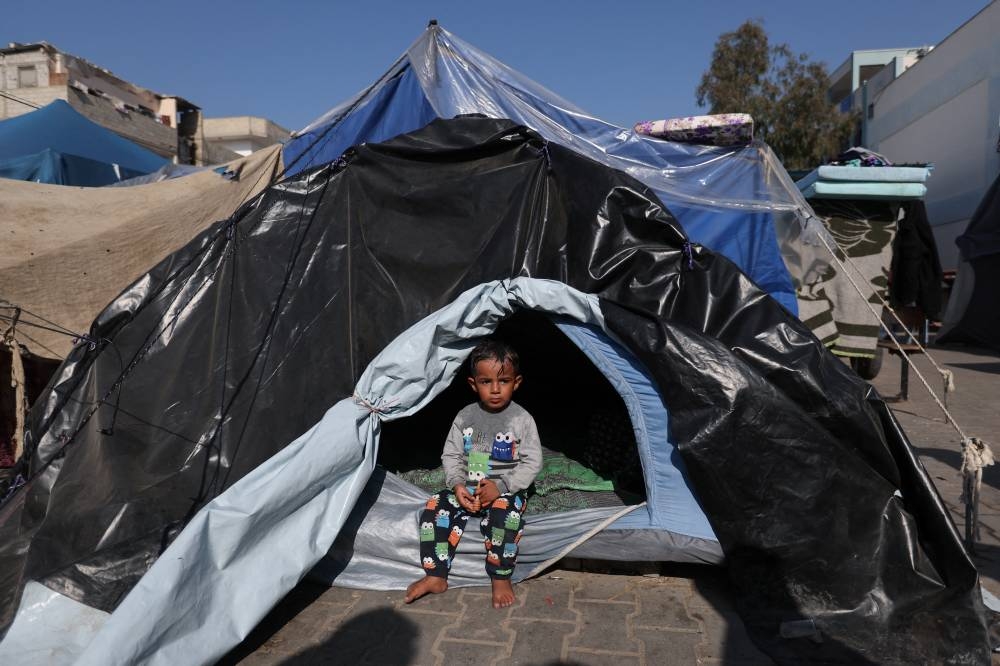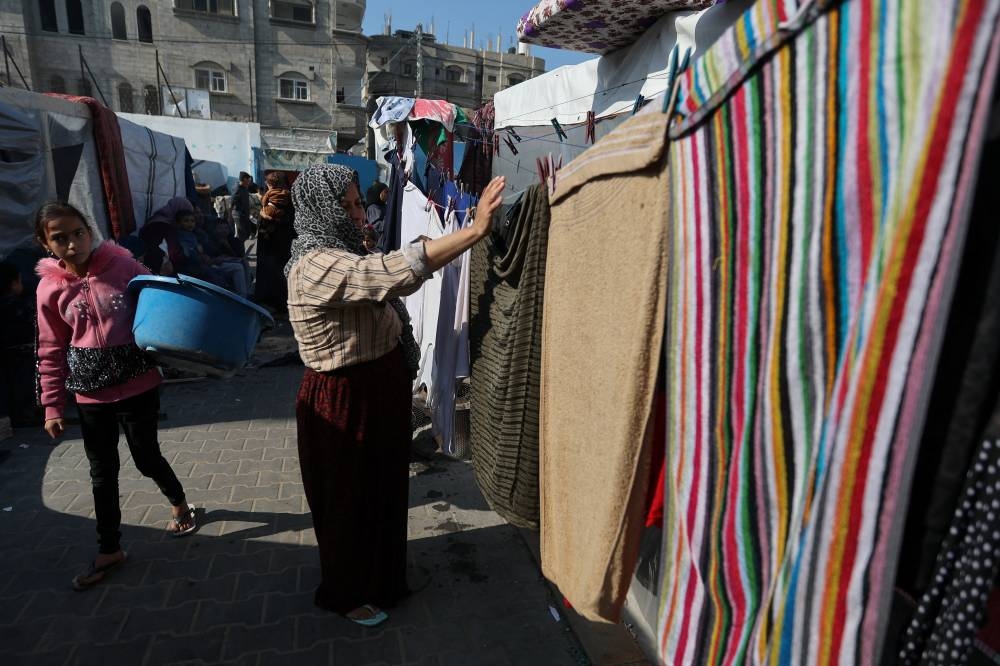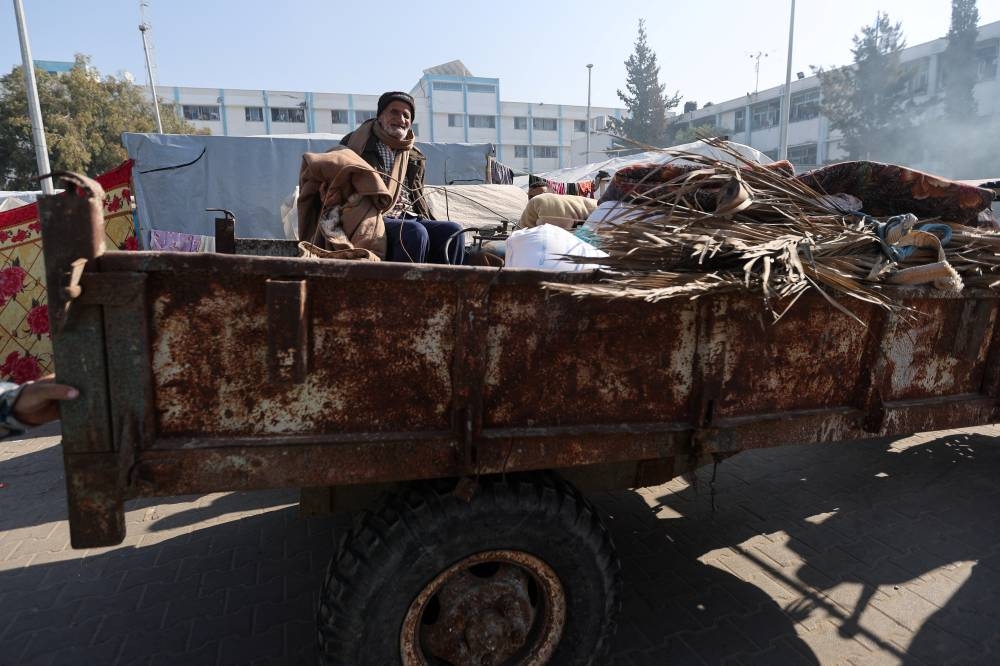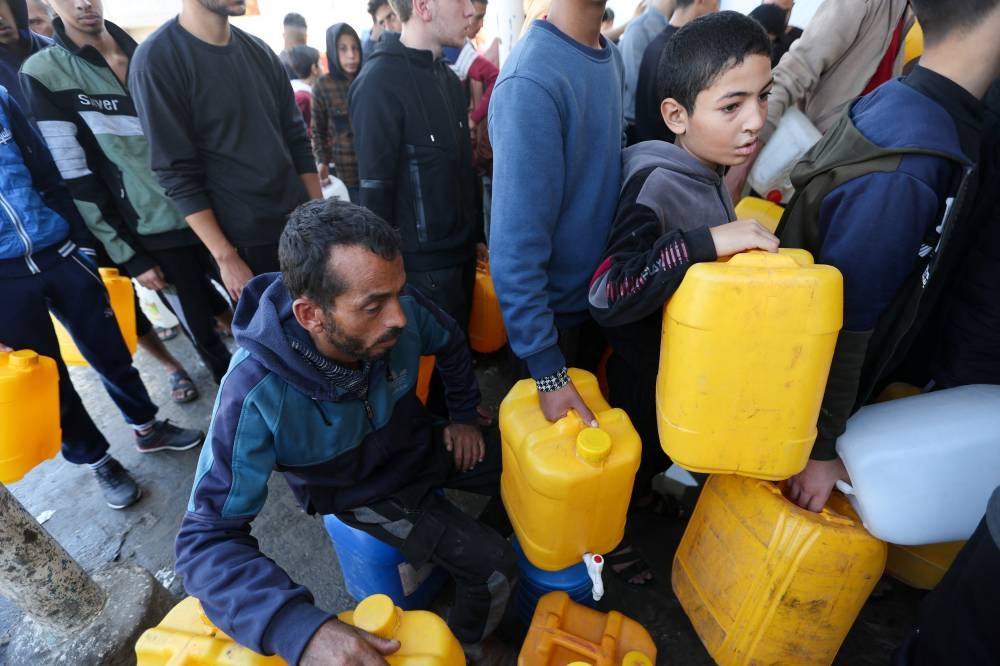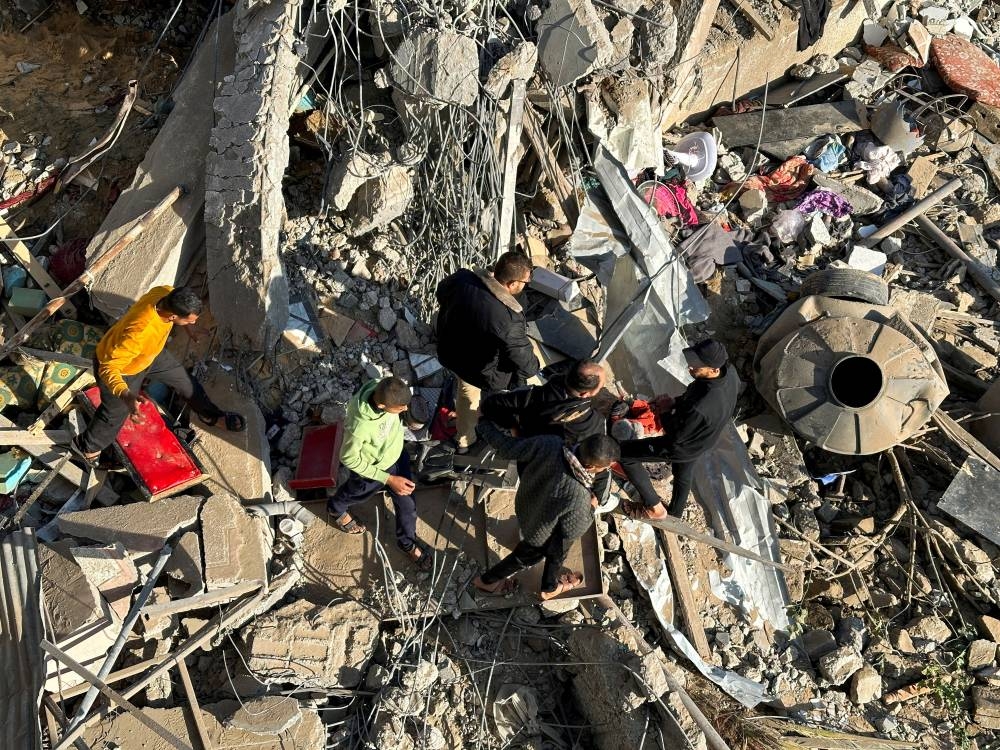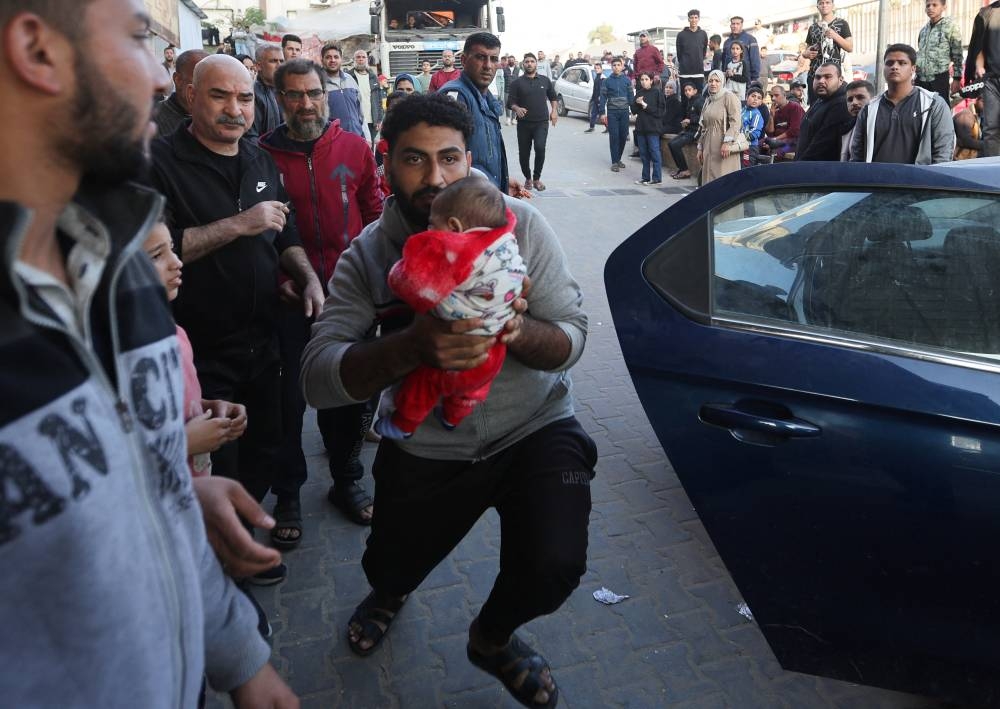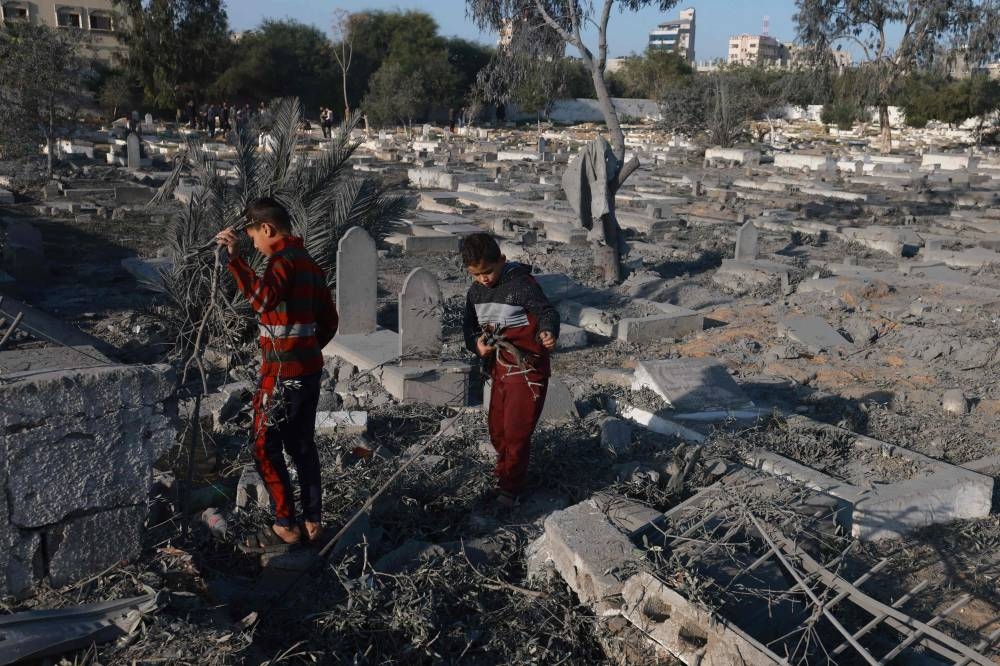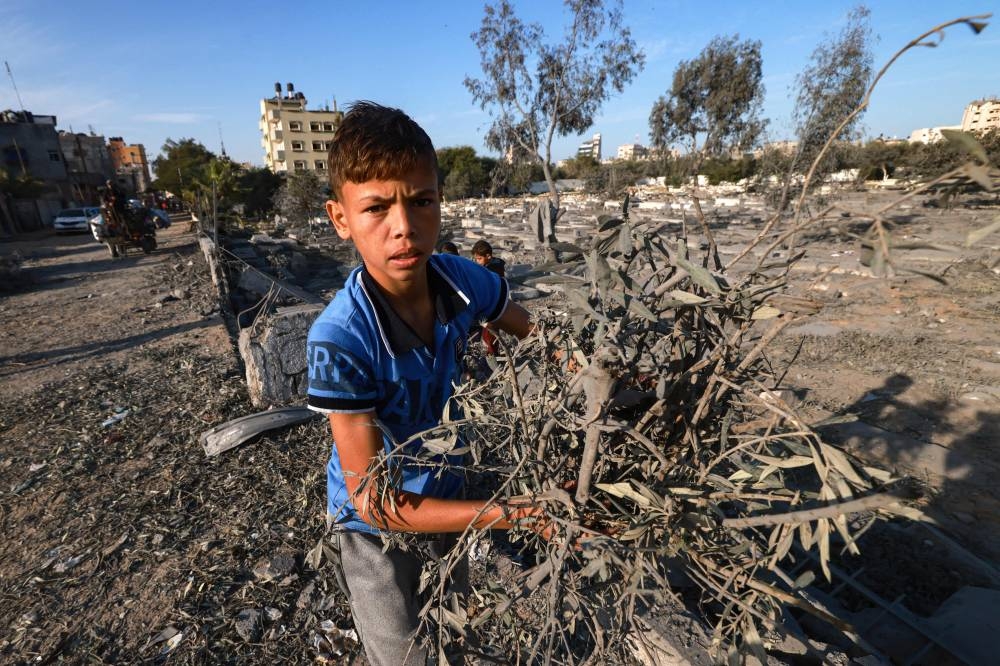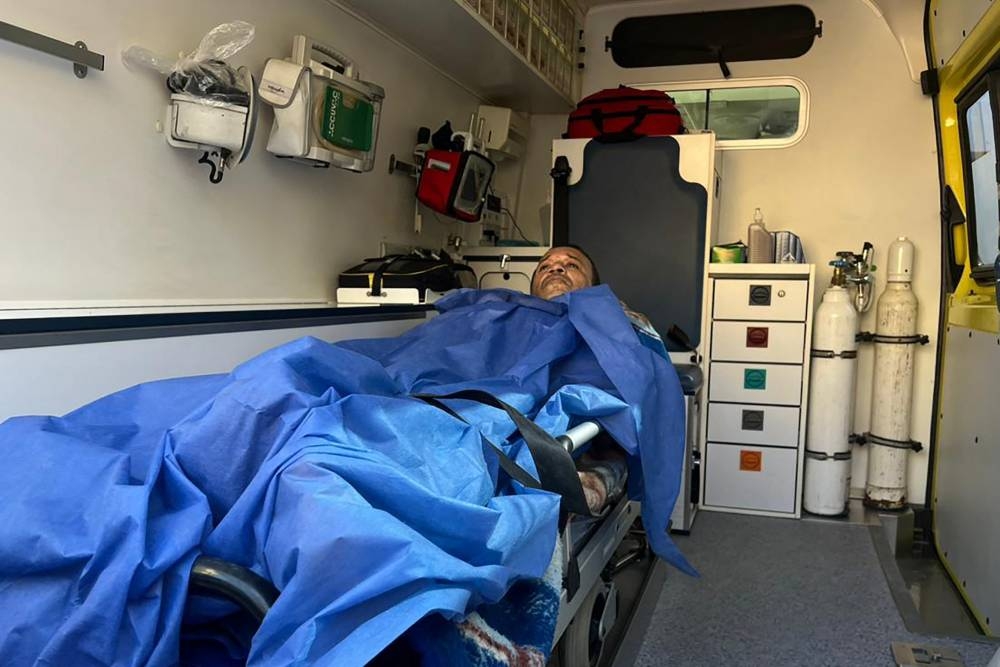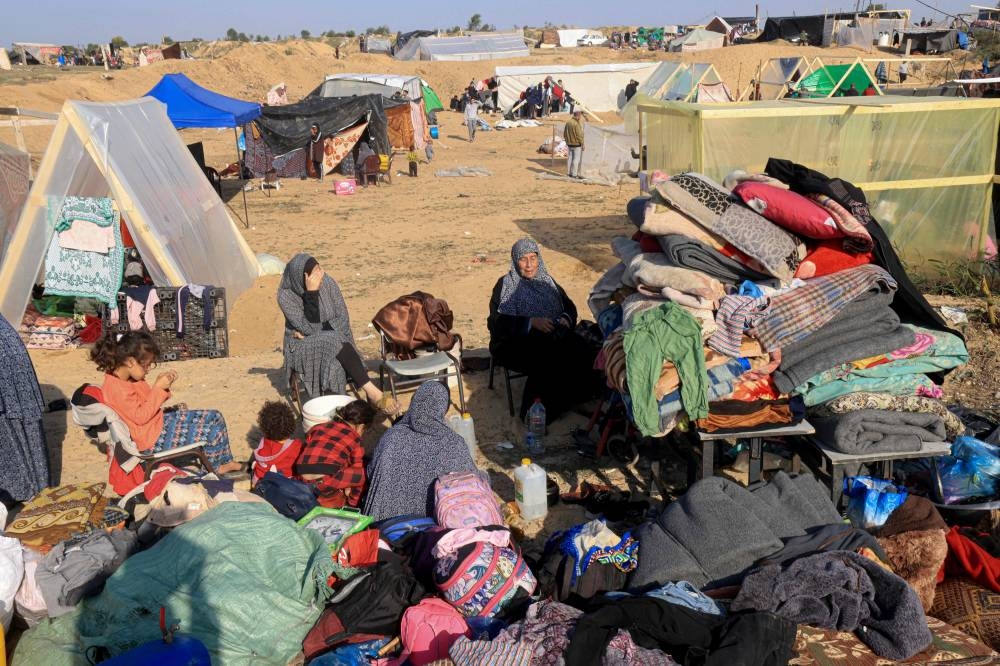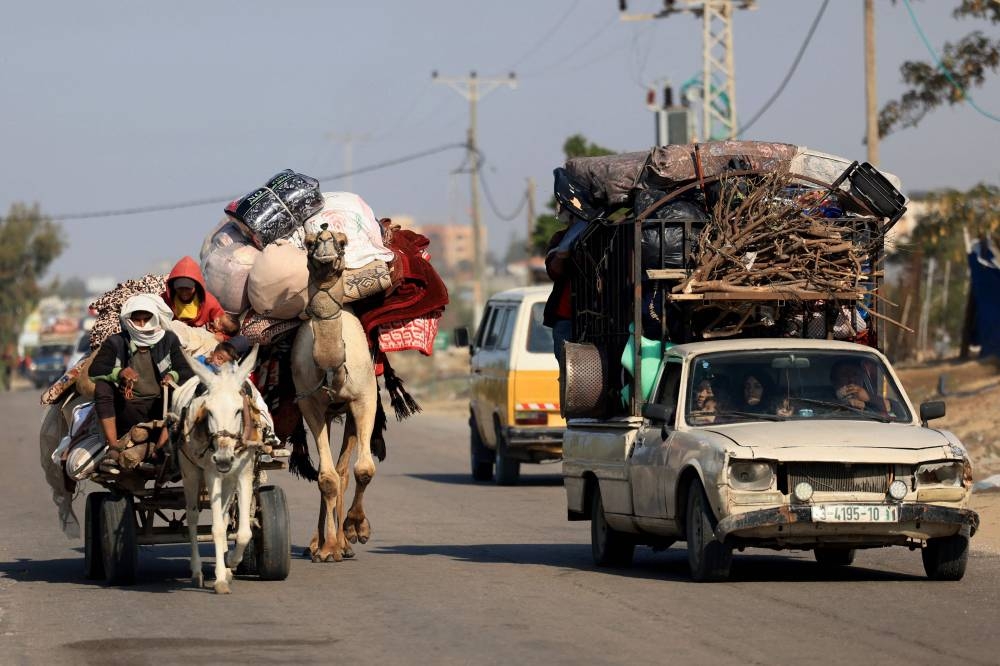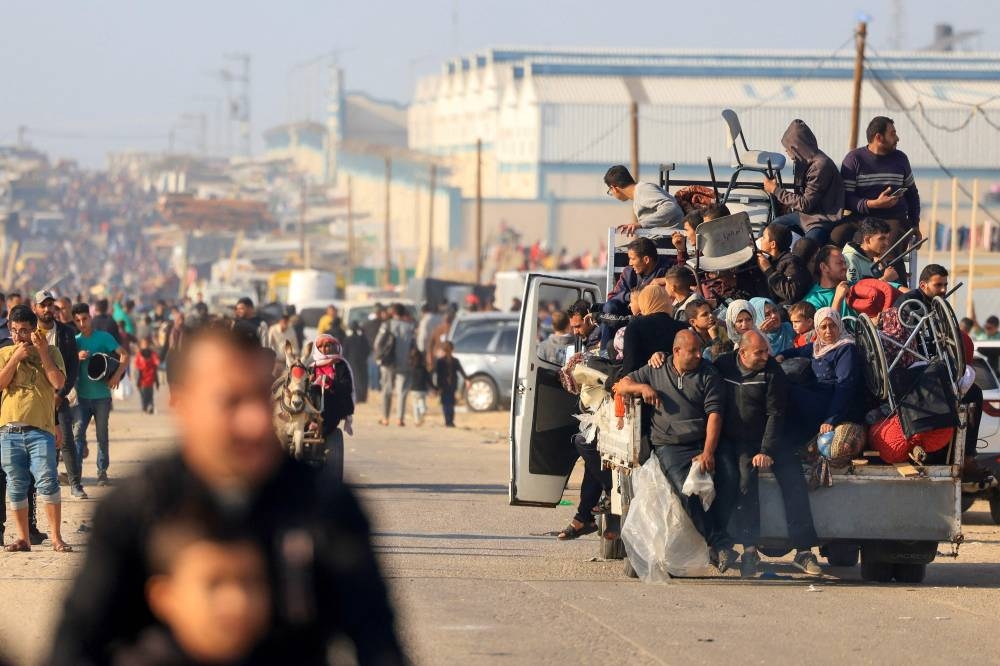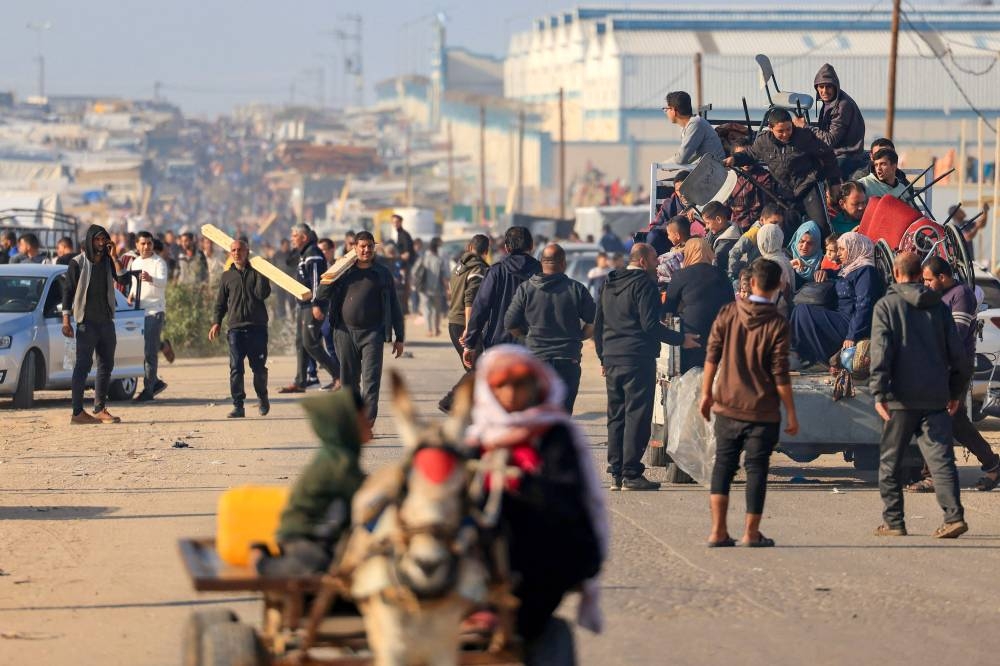- "People are pleading for advice on where to find safety," UNWRA official says
Israeli troops and tanks also pressed the ground campaign against Hamas in the south of the enclave after having largely gained control of the now-devastated north.
Israel's military posted a map on social media platform X on Monday morning with around a quarter of the city of Khan Younis marked off in yellow as territory that must be evacuated at once.
Three arrows pointed south and west, telling people to head towards the Mediterranean coast and towards Rafah, near the Egyptian border.
Desperate Gazans in Khan Younis packed their belongings and headed towards Rafah. Most were on foot, walking past ruined buildings in a solemn and silent procession.
But Rafah itself was coming under Israeli fire. The head of the United Nations agency in Gaza (UNWRA), Thomas White, said people there were themselves being forced to flee.
"People are pleading for advice on where to find safety. We have nothing to tell them," he said on X.
Bombing at one site in Rafah overnight had torn a crater the size of a basketball court out of the earth. A dead toddler's bare feet and black trousers poked out from under a pile of rubble. Men struggled with their bare hands to move a chunk of the concrete that had crushed the child.
Later they chanted "God is greatest" and wept as they marched through the ruins carrying the body in a bundle, and that of another small child body wrapped in a blanket.
"We were asleep and safe, they told us it was a safe area, Rafah and all," said Salah al-Arja, owner of one of the houses destroyed at the site.
"There were children, women and martyrs," he said. "They tell you it is a safe area, but there is no safe area in all of the Gaza Strip, it is all lies and manipulations."
Gaza's health ministry said on Monday that at least 15,899 Palestinians, 70% of them women or under 18s, have now been killed in Israeli air and artillery strikes on the enclave since Oct. 7. Thousands more are missing and feared buried in rubble.
As many as 80% of Gaza's 2.3 million people have fled their homes in the Israeli bombing campaign that has reduced much of the crowded coastal strip to a desolate wasteland.
Israeli forces largely captured the northern half of Gaza in November, and since a week-long truce collapsed on Friday they have swiftly pushed deep into the southern half.
Tanks have driven into Gaza from the border fence and cut off the main north-south route, residents say. The Israeli military said the central road out of Khan Younis to the north "constitutes a battlefield" and was now shut.
The commander of Israel's armoured corps, Brigadier-General Hisham Ibrahim, told Army Radio the military had almost achieved its goals in northern Gaza.
"We are beginning to expand the ground manoeuvre to other parts of the Strip, with one goal: to topple the Hamas," he said.
The military released footage of troops patrolling in tanks and on foot, in fields and in badly damaged urban areas, and firing from weapons, without specifying the location in Gaza.
Israel says its evacuation orders are aimed at protecting civilians from harm, and called on international organisations to help encourage Gazans to move to the areas labelled safe on Israeli maps.
The United Nations said the areas in the south that Israel has ordered evacuated in the three days since the truce had housed more than 350,000 people before the war - not counting the hundreds of thousands now sheltering there from other areas.
In Khan Younis, many of those taking flight on Monday were already displaced from other areas. Abu Mohammed told Reuters it was now the third time he had been forced to flee since abandoning his home in Gaza City in the north.
"Why did they eject us from our homes in Gaza (City) if they planned to kill us here?" he said.
At a home in Khan Younis that was struck overnight, flames licked the collapsed masonry and grey smoke billowed out from the rubble.
A child's stuffed toy sheep lay in a pile of dust. Boys were picking through the wreckage. Next door, Nesrine Abdelmoty stood amid damaged furniture in the rented room where she lives with her divorced daughter and two-year-old baby.
"We were sleeping at 5am when we felt things collapse, everything went upside down," she told Reuters. "They told (people) to move from the north to Khan Younis, since the south is safer. And now, they've bombed Khan Younis. Even Khan Younis is not safe now, and even if we move to Rafah, Rafah is not safe as well. Where do they want us to go?"
Israel's closest ally the United States has called on it to do more to safeguard civilians in the southern part of Gaza than in last month's campaign in the north.
Israel permitted additional humanitarian supplies to enter the enclave during the truce, but the United Nations says this was paltry compared with the territory's vast humanitarian needs, and has now been interrupted by the renewed fighting.

